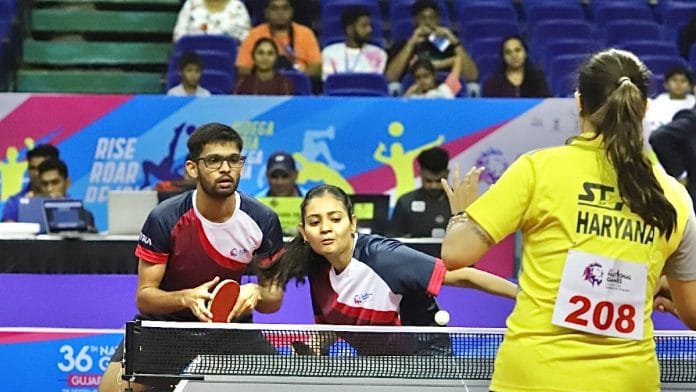New Delhi: An alarming insufficiency of professionals in the Table Tennis Federation of India (TTFI), mismanagement in its functioning and control by those with no sports experience have reduced the body to “a courier service” sending entries for events and for collection of funds and grants, a Committee of Administrators (COA) led by Justice Gita Mittal has said.
The panel highlighted these points in a report, accessed by ThePrint, submitted to the Delhi High Court on 12 September.
In its report, the committee has suggested reforms for TTFI, noting the major flaws in its governance, and called for systemic reforms in the functioning of the national federation.
The three-member COA was formed in February to run the TFFI’s affairs, after table tennis champion Manika Batra moved the high court alleging bias in the selection process of the sports governing body.
As per its charter of duties, the panel headed by the former Jammu & Kashmir High Court chief justice Mittal also has to conduct tournaments, apart from discharging administrative and routine duties.
Other points flagged in the report include non-transparency in selection of players, resistance to reforms, and little communication among stakeholders.
Also Read: More politicians than footballers in fray for Indian football body’s top job
‘Whims & fancies of officials’
The CoA report says that if the federation performs its duties properly, acts professionally, trains players and identifies talents, the sport will yield good results.
The federation, however, has been misusing its position to feed into the whims and fancies of officials having no regard for the welfare of sportspersons, it adds.
For addressing the manpower crunch, it recommends hiring of professionals, coaches, and consultants as per the requisite guidelines and suggests that a national-level camp be set-up in Bengaluru.
The committee also flagged the improper selection of players. “No transparency in the policy for selection, or for that matter in any other policy matters,” it said, and outlined measures to implement an “exhaustive ranking criterion” and selection guidelines for international tournaments.
The panel noted that there was a lack of interaction between the federation and other stakeholders, including players, coaches and state associations.
To end such a conflict, it recommended regulation of player transfer through a comprehensive policy. It also suggested an electronic draw of lots for national and international tournaments.
To increase accessibility, the development of sports infrastructure was also proposed in Tier-III and Tier-IV cities.
The committee proposed a ‘Centre of Excellence’ with expert coaches be set up at national and zonal levels to support players. It also recommended the development of the game for para players.
Compliance with the National Sports Code — which aims at bringing transparency and accountability in the functioning of national sports federations — was also advised for TTFI.
“The Federations, as in the present case i.e., Table Tennis Federation of India have to set their house in order urgently to remain relevant,” the report said.
‘Every effort to stall progressive steps’
The panel noted that despite specific court directions to cooperate, “every effort [was] made to stall any progressive steps” and that there was no effort by TTFI officials to raise funding from private or public bodies. The existing funding was also stopped to create financial distress for the TFFI, it disclosed.
“Experts, other stakeholders, former international players of high repute and distinguished coaches have been completely marginalised,” the report said.
The committee also flagged the location of the Federation office as being in a ‘noticeably inappropriate’ part of the city. At present, the office is located on Rohtak Road, a considerable distance from the city. It recommended that the office be shifted to a more approachable, appropriate part of the city.
Akshat Jain is a student of the National Law University, Delhi, and an intern with ThePrint.
(Edited by Tony Rai)
Also Read: ‘Fiefdoms of individuals’: Why this lawyer is waging court battle to hold sports bodies accountable






